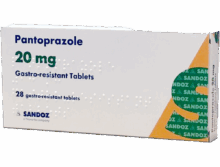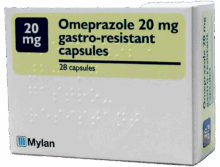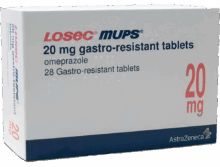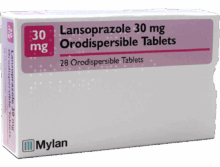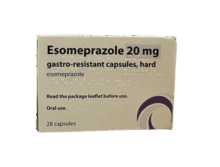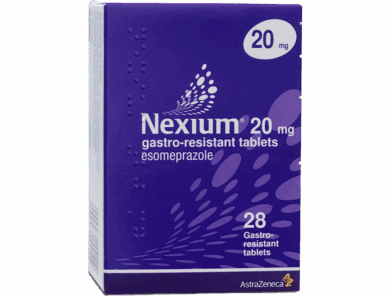
Nexium 20mg/40mg
from
£14.99
Nexium is a proton pump inhibitor, which relieves symptoms of acid reflux. Nexium is also available as a generic medicine under the name esomeprazole.
Nexium 20mg/40mg
Buy Nexium
Buy Nexium 20mg and Nexium 40mg acid reflux tablets online from our UK online pharmacy. Complete a short consultation and our health specialists will assess and dispense your medication via our next day delivery service.
Nexium Prices
| Name & Dosage | x14 Tablets | x28 Tablets |
|---|---|---|
| Nexium 20mg Tablets | £14.99 | £27.99 |
| Nexium 40mg Tablets | £24.99 | £45.99 |
Summary for Nexium
| Medication Class | Proton Pump Inhibitor (PPI) |
|---|---|
| Mechanism of action | Stops the production of stomach acid |
| Active ingredient | Esomeprazole |
| Strength | 20mg, 40mg |
| Effective within | 1-2 hours, can take up to 4 days for full effectiveness |
| Dosage Instructions | GERD treatment: 40 mg tablet, once a day Ulcer prevention & treatment: 20 mg tablet, twice a day |
| Manufacturer | AstraZeneca UK Limited |
| Use with alcohol | No |
About Nexium
Key Points
- Treats acid reflux, indigestion, heartburn, stomach ulcers
- Reduces the amount of acid in your stomach
- Starts working within 1 to 2 hours
What is Nexium?
Nexium is an acid reflux medicine. It targets pain caused by symptoms such as indigestion and heartburn. Nexium is also effective in treating gastro-oesophageal reflux disease GERD, a condition that causes you to keep on getting acid reflux.
How Does Nexium Work?
Nexium tablets reduce the production of stomach acid by blocking proton pumps that secrete hydrochloric acid into the stomach. The reduction in acid production helps to relieve symptoms associated with acid reflux.
How Long Does Nexium Take to Work?
After taking the first Nexium dose, it typically reduces stomach acid and relieves symptoms within 1 to 2 hours. For conditions like GERD, the effects may not be felt immediately. It can take 1 to 4 days of consistent use for nexium to reach its maximum effectiveness. This is because it needs time to inhibit the proton pumps in the stomach lining that produce acid.
Can I Take Nexium 20 mg Twice a Day?
Yes, but this only applies for the treatment and prevention of ulcers. There are various nexium tablet uses therefore it’s important to always follow the exact advice given to you from your doctor or pharmacist and refer to the enclosed patient information leaflet.
Nexium Alternatives
What to Take Instead of Nexium
Alternative Proton Pump Inhibitors (PPIs) are available such as omeprazole and lansoprazole which work like nexium, reducing stomach acid by blocking the proton pumps in the stomach lining. You may decide to choose an alternative treatment based on preference around cost, availability and your response to the medication.
Preventions
Acid reflux can be prevented or reduced by making lifestyle and dietary changes. You can try:
- Avoiding foods that increase acid production such as spicy, fatty or fried foods, citrus fruits and juices and alcohol
- Reducing your meal portion sizes
- Eating more frequently
- Sitting upright after you finish eating your meal
- Chewing food properly
- Exercising and managing excess weight
- Quit smoking
Nexium Ingredients
Active ingredient: Esomeprazole
Inactive ingredients: glycerol monostearate 40-55, hyprolose, hypromellose, iron oxide (20 mg reddish-brown, yellow, 40 mg reddish brown) (E172), magnesium stearate, methacrylic acid ethyl acrylate copolymer (1:1) dispersion 30 per cent, microcrystalline cellulose, synthetic paraffin, macrogol, polysorbate 80, crospovidone, sodium stearyl fumarate, sugar spheres (sucrose and maize starch), talc, titanium dioxide (E171), triethyl citrate
Nexium Dosage Instructions
To Treat GERD
The recommended dose is one Nexium 40 mg gastro-resistant tablet once a day for 4 weeks for adults.
To treat and prevent ulcers:
- Nexium 20 mg gastro-resistant tablet twice a day for one week for adults.
- If you forget to take a dose you should take it as soon as you remember it. However, you should skip the missed dose if it is almost time for your next dose.
- Do not take two doses at the same time to make up for a forgotten dose. If you do take more nexium than prescribed, you should tell your doctor or pharmacist immediately.
- The tablets can be taken with food or on an empty stomach.
Nexium Side Effects
You should stop taking nexium and contact a doctor immediately if you notice any of the following serious side effects:
- Wheezing suddenly
- Swollen lips, tongue and throat or body
- Rash, fainting or difficulties in swallowing (severe allergic reaction)
- Reddening of the skin with blisters or peeling
- Severe blisters and bleeding in the lips, eyes, mouth, nose and genitals. Could be a sign of ‘Stevens-Johns syndrome’ or ‘toxic epidermal necrolysis’.
- Yellow skin, dark urine and tiredness can be symptoms of liver problems.
Common Side Effects (can affect up to 1 in 10 people):
- Headache
- Diarrhoea
- Stomach pain
- Constipation
- Wind
- Nausea or vomiting
- Benign polyps in the stomach
Uncommon Side Effects (can affect up to 1 in 100 people):
- Feet and ankle swelling
- Disturbed sleep
- Feeling dizzy
- Tingling such as “pins and needles”
- Feeling tired and sleepy
- Vertigo
- Dry mouth
- Changes in liver blood test results
- Skin rash, hives and itchy skin
- Fracture of the hip, wrist or spine (if nexium is used in high doses and over long duration)
In very rare cases nexium can affect the white blood cells leading to immune deficiency. You should see your GP urgently if you have an infection with symptoms such as:
- Fever with a severely reduced general condition
- Fever with symptoms of a local infection such as pain in the neck, throat or mouth or difficulties in urinating
This is so that a lack of white blood cells (agranulocytosis) can be ruled out by a blood test.
Nexium Warnings
If you’re planning on taking nexium and any of the following apply to you, speak to your doctor before taking this medicine:
- You have severe liver or kidney problems
- You’ve had a skin reaction after treatment with a medicine like nexium that reduces stomach acid
- You’re due to have a specific blood test (Chromogranin A)
Important: Nexium may hide the symptoms of other diseases. Talk to your doctor straight away if any of the following happen to you before you start taking nexium or while you are taking it:
- Weight loss for no reason and struggle to swallow
- Stomach pain or indigestion
- Vomiting food or blood
- Pass black poo
Your risk of fracture in the hip, wrist or spine can increase when taking a proton pump inhibitor, especially over one year. You must tell your doctor or pharmacist if you have osteoporosis or if you are taking corticosteroids.
You may need to stop your treatment if you get a rash on your skin, especially in areas exposed to the sun.
Nexium Interactions
What Not to Take with Nexium
Nexium can affect the way some medicines work, and some medication can influence how nexium works.
You must not take nexium if you are taking medicine to treat HIV infection containing Nelfinavir.
You should talk to your doctor if you are taking any other medicines, including those bought over the counter before taking nexium. This includes:
- Atazanavir – treats HIV infection
- Clopidogrel – prevents blood clots
- Ketoconazole, itraconazole or voriconazole – treats infections caused by a fungus
- Erlotinib – treats cancer
- Citalopram, imipramine or clomipramine – treats depression
- Diazepam – treats anxiety, relaxes muscles or epilepsy
- Phenytoin – used in epilepsy
- Blood thinning medicines, such as warfarin
- Cilostazol – treats intermittent claudication caused by an insufficient blood supply
- Cisapride – treats indigestion and heartburn
- Digoxin – treats heart problems
- Methotrexate – chemotherapy medicine
- Tacrolimus – used for organ transplantation
- Rifampicin – treatment of tuberculosis
- St. John’s wort – used to treat depression
It’s important to tell your doctor about any other medicines you may be taking if you have been prescribed the antibiotics amoxicillin and clarithromycin as well as nexium to treat ulcers caused by Helicobacter pylori infection.
Nexium and Pregnancy/Breastfeeding
Can you take nexium while pregnant?
There is no evidence that taking nexium will reduce fertility, but information about its use during pregnancy is limited, so it is advised that people who are pregnant or planning to get pregnant should not use this medicine. You should speak to your GP who can advise on the best alternative treatment options for you.
You should not take nexium if you are breastfeeding because it is not known whether nexium passes into breast milk.
Frequently Asked Questions
Nexium is usually most effective when taken at least 30 minutes to 1 hour before a meal, typically before breakfast. However, this can be dependent on your specific condition and how you respond to the medication.
Product Reviews
product rated 4/5
Rated for genuine product and prompt delivery.
By Abiola Jaja (via TrustPilot)Superintendent Pharmacist
Written by Chemist Click
First created 22nd April 2025
Last reviewed 1st October 2025
Other options include:

Our Awards & Certifications
Our team of experienced pharmacists and healthcare professionals are dedicated to providing the highest level of care and service to every customer, ensuring that they receive the best possible healthcare experience.

Our Clients Say:
Constantly good service, always very quick to deliver items.
By Phil ElliottHighly recommend. Fast delivery. Reliable.
By Carlene GraceHad a great experience, right from consultation to med delivery it was very efficient and professional. Thanks.
By Shefali PathakEasy to navigate website, regularly use their service, prompt timely delivery, discounts for regular customers could be considered.
By ArunI shopped around before purchasing and items price was good. Delivery was prompt and P+P reasonable. Item was as described. Good service.
By Mark LockettGood website, intuitive with great information. Efficient, from payment through to delivery, and good communication updates all the way.
By Graeme WalkerExcellent service. I ordered some meds which was dispatched very quickly and arrived super fast. The meds has a very long expiry date. I would definitely order again. Many thanks.
By Ian TBest company there is for me. Great service and excellent quality plus pricing is perfect. I wouldn't want to use anyone else in all honesty. I have recommended this company to all my friends. It's a tricky subject for us older guys but this company makes it all respectful and they discretion is very much appreciated by us all.
By Mr FranklinLatest articles...

Use our free weight loss calculator to see your results in percentages and track your progress accurately. This guide explains what counts as real results, safe ways to lose weight and points you to useful resources to support your journey.
Read the article
